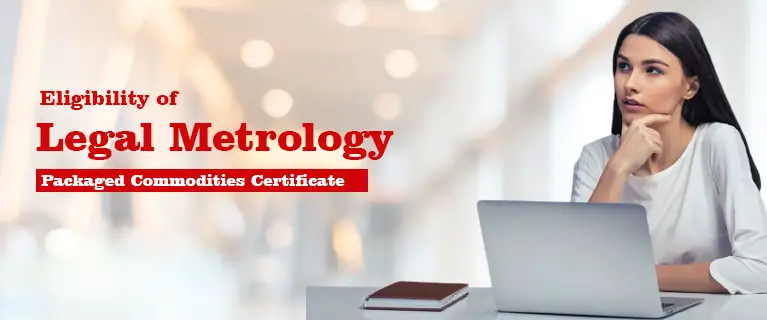To ensure fairness and accuracy in weighing and measuring, there are some predefined rules and regulations in India. The term for this is legal metrology. This regulation requires government officials to inspect weighing devices, gasoline pumps, water metres, and thermometers using specific weights and measurements.
Additionally, there are regulations for commodities that are packaged and offered for purchase. Certain objects require the use of special labelling. The origin, amount, date of production, and price of the product are all disclosed on the labels. Legal Metrology guidelines aid in establishing standards for particular products:
- The Legal Metrology (Approval of Models) requirements, 2011, which govern legal metrology, include requirements for pre-packed items.
- Legal Metrology (National Standards) Rules, 2011 rules are the name of the regulations governing weights and measurements.
- The Legal Metrology (Numeration) guidelines, 2011 guidelines specify how numbers should be written.
- In accordance with the Indian Institute of Legal Metrology Rules, 2011 there are regulations for training officers.
- “The Legal Metrology (Government Approved test Centre) Rules, 2013 rules” govern how to inspect devices like water metres, thermometers and weighing scales.
Legal Metrology Registration
- Company Registration: Company Registration: Under legal metrology, a corporation must register if it manufactures, imports, or packs weighing and measuring instruments.
- Importer Registration: In order to sell or transfer tools to India, importers must get a special document called a “Certificate of Registration of Importer of Weights and Measuring Instruments.” The tools must adhere to the specifications and be properly packed.
- Registration of Manufacturers, Importers, and Packers: In order to properly package and store their products, manufacturers, importers, and packers must register or renew their product labels. The Legal Metrology Certification includes this. For products to be sold in India, it is necessary.
Weight and measurement products must go through a 5-stage registration process before being registered. Weighing machines are one example. The department of Legal Metrology certifies the model, registers packaged goods, and issues a licence for importing, grants a permit to sell, and marks the goods.
Legal Metrology Licenses
LMPC licences refer to the certificates and authorizations necessary for enterprises engaged in operations involving the measuring and verification of different quantities, such as weight, length, volume, and time. These licences are normally granted by the designated legal metrology authorities or governing entities in charge of executing the applicable jurisdiction's metrology laws and standards. In India, these three licences are available:
Manufacturer Licence: This licence is given to those who produce weights and measures, whether they be individuals or businesses.
Repairer License: A repairer licence is given to people or companies who work with cleaning, lubricating, adjusting or painting weights and measures.
Dealer Licence: Persons or organisations engaged in trading and marketing of measures and weights are granted a dealer licence.
Eligibility for obtaining a LMPC Registration
To be eligible for LMPC Registration, your application and your product must both adhere to the Legal Metrology Packaged Commodities requirements.
- Several documents are needed in order to register for legal metrology in India.
- Any further business licences that are necessary for your company to operate
- a properly completed application
- Thereafter, request for documentation about the application fee.
- Information that you must enter into the relevant fields on the display pane of the package.







